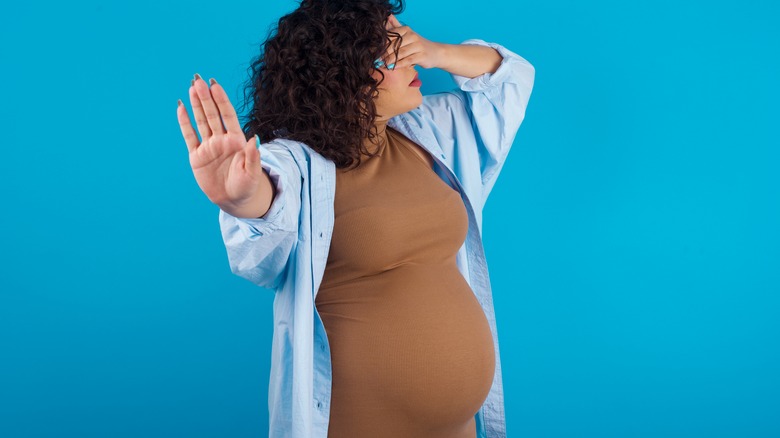Study Finds Racism Puts Pregnant People At A Heightened Risk For Premature Infants
It's no surprise that racism and discrimination have consequential negative impacts, but science continues to confirm this and shed light on just how pervasive the effects are. Recent research has found that not only is adult health impacted by discrimination, but the health of infants can be, too.
The U.S. has the highest maternal mortality rate of all developed countries, and Black women are at least three times more likely to die as a result of pregnancy than white women, according to the American Medical Association. Not only that, but studies show that people of color who experience racism are more likely to suffer from poor mental and physical health, such as higher rates of anxiety and depression, high blood pressure, increased inflammation, and poor sleep (via Medical News Today).
We already know that racism leads to adverse birth outcomes, such as low birth weight, according to a review published in BMJ Global Health. And now researchers have linked racism with higher rates of premature birth and babies that are small for their gestational age.
The dangers of racism for pregnant people and infants
The research analyzed 24 studies, with participants of varying racial and ethic backgrounds and each study ranging from 39 to 9,470 participants (via U.S. News & World Report). The studies were on self-reported race discrimination along with premature birth, low birth weight, and high blood pressure associated with pregnancy.
Researchers found that experiences of race discrimination were linked to increased risks of premature birth and giving birth to a baby that's small for gestational age. The risk of premature birth was about 40% greater, and the risk of a small-for-gestational-age baby was 23% greater. Researchers admitted that many of the studies were of poor quality, namely that they didn't include all marginalized ethnic groups. However, even in excluding the studies of poor quality, researchers found that the odds of premature birth were still 31% higher.
The research team recommended that these effects of racism could be improved by clinician training and increasing diversity in health professionals.


